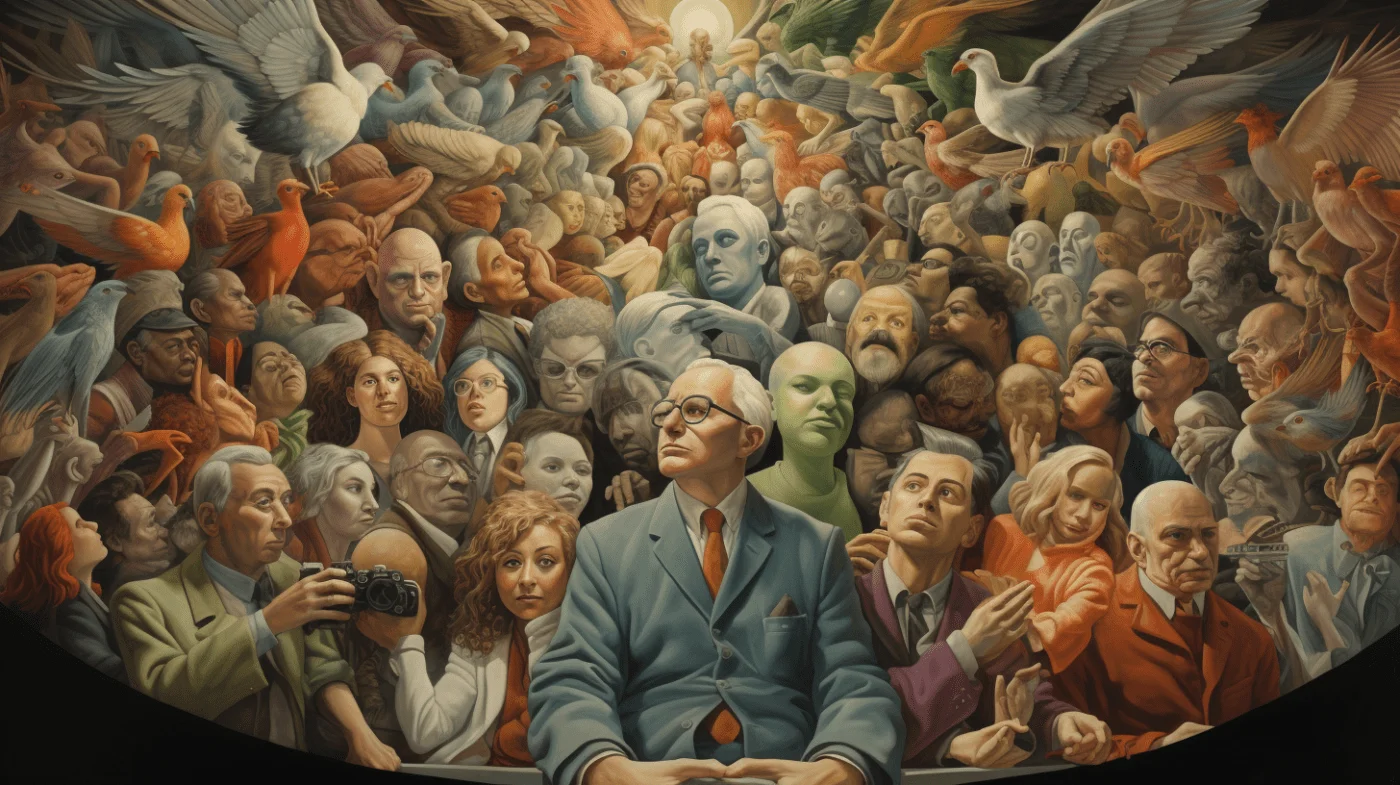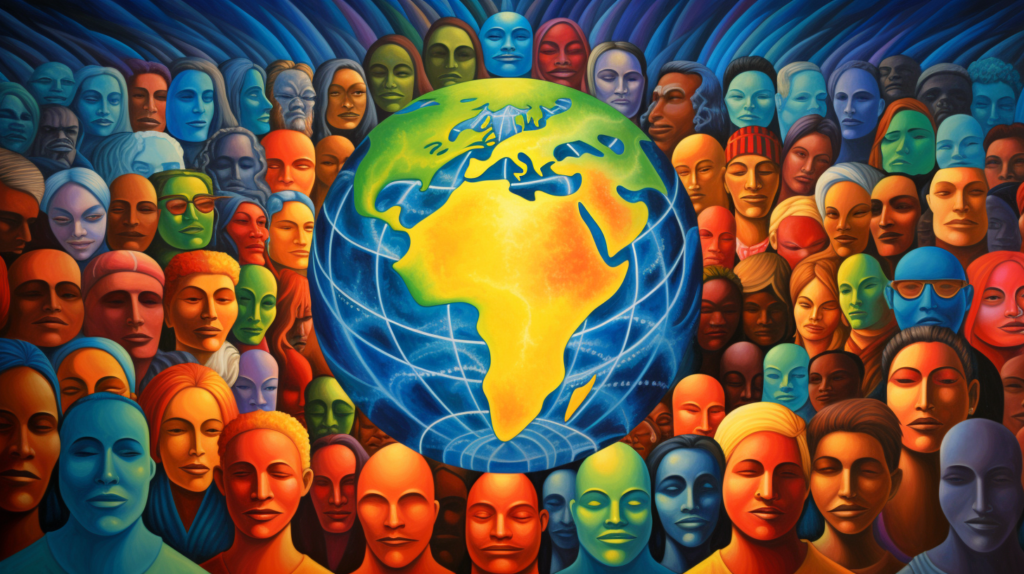Humanism
More Than an Escape: The Hidden Power of the Narrative Storm
16 February 2026

Scientists refer to the current period in Earth’s history as the Anthropocene. This is a new geological epoch, marked by unprecedented, human-induced, global, and negative changes to the ecosystem. Based on empirical research findings, the ‘cornerstone’ of this epoch is identified as the onset of the Industrial Revolution. From a humanistic perspective, the beginning of the time of Homo sapiens is a ‘creeping’ axiological opening, rather than a specific historical or natural boundary point.
Research into the anthropogenic sources of the global climate crisis is interdisciplinary in nature. These studies are conducted by representatives of various sciences: geographers, chemists, climatologists, oceanographers, hydrologists, geochemists, atmospheric chemists, planetary systems researchers, and geologists. This issue, obviously, also falls within the interests of ecologists and life scientists. Recognizing the climate threat has led to the dynamic development of various natural sub-disciplines, each characterized by distinct methodological specifics.
Andrew Pullin, one of the leading theorists in environmental management and protection, emphasizes that the destabilization of Earth’s ecosystem is one of the most pressing issues of the modern world. Climate problems require comprehensive analysis, and their resolution demands decisive and swift actions based on well-founded scientific knowledge. Science must be the remedy for the crisis.
The concept of the Anthropocene was proposed in 2000 by Paul Crutzen, a Nobel Prize laureate in Chemistry for his work on changes in atmospheric ozone. Introducing a new geochronological unit into the scientific lexicon is not an easy task. It must be based on convincing empirical evidence, which is meticulously analyzed by the International Commission on Stratigraphy. What is stratigraphy? It is a branch of geology that deals with the analysis of the age and causes of rock formation in the Earth’s crust.
We recommend: Respect or Die: Why Human Survival Depends on How We View Nature
The geological past of Earth is determined through the study of rock layers. Therefore, defining the nature of climate changes, particularly the beginnings of the Anthropocene epoch, can be reduced to comparing the current climate with the past state of the Earth’s atmosphere. Research leaves no doubt that the continuation of life on our planet is absolutely dependent on its climate.
About 3 billion years ago, the first significant climate changes occurred, which had subsequent iterations in later periods. These were undoubtedly natural phenomena. The specificity of the Anthropocene stems from the substantial basis for asserting that current climatic transformations are a result of human activity and are not part of the natural progression of nature’s cycles. Researchers argue that Earth’s period of climatic stability is coming to an end, and the cause is the release of greenhouse gasses from the burning of fossil fuels into the atmosphere.

The increasing emission of this byproduct of energy production leads to a disruption of climatic balance, resulting in what is commonly referred to as weather change. The anthropogenic nature of the currently observed destabilization of Earth’s ecosystem is a well-confirmed scientific fact. Determining the boundary moment from which we count the time of the human epoch in the geological history of our planet is the result of scientific consensus.
When was the process of the planet’s degradation by humans initiated? The destructive power of civilization was not a ready-made product; it was born in successive emanations of human effort, the turning points of which can be marked by many moments in time. Moving beyond strict chronology, it can be indicated that the transition from a nomadic to a sedentary lifestyle initiated our species’ dominance. Similarly, the domestication of animals and the emergence of larger human settlements, eventually leading to cities and, over time, large agglomerations, can be identified as pivotal. The Anthropocene, in a way, crept along to reach a moment of great acceleration – industrialization, capital accumulation, and the creation of a global village. What we today define as the climate crisis is only the culmination of this process, the overture of which was the great Industrial Revolution.
In 2008, renowned Italian philosopher Giorgio Agamben delivered a lecture at Notre Dame Cathedral where he asserted that contemporary social sciences repeatedly herald the arrival of an irreversible catastrophe. He argued that this is a secularized, moreover, degenerated form of the eschatological perspective of the end times, encapsulated in Christian spirituality by the image of St. John’s Apocalypse.
Perhaps the end of the Earth as we know it should be considered banal compared to the ultimate word on the scale of the Absolute. However, our natural environment is changing before our eyes, and the dramatic, prophetic calls for a revision of humanity’s stance towards nature are not merely rhetorical emptiness. The current attitude of Homo sapiens towards Earth’s habitat, which ensures the continuation of life as we know it, will determine whether there will be epochs after the age of man. Will our children be able to name subsequent periods in human history? After all, if humanity perishes, there will be no one to name and nothing to be named. In plain terms: the decisions and actions we make today will decide what we will have tomorrow, the day after, and in a hundred years.
We recommend: Daniel Susskind On Two Types of Artificial Intelligence: “I’m Concerned About the Army of Lesser AI”
The search for the origins of the Anthropocene must begin by identifying the axiological basis that defines the relationship of the contemporary post-industrial human to nature. One can debate when the values that define our existence within the natural environment were agreed upon. Was it the mythical Eden, where the words ‘subdue the earth’ were spoken? Or was it the moment we tamed fire and discovered the power to transform matter? Pointing to the rise of modern science, which resulted in the contemporary scientific view of the world, is also a good resolution to this issue.
In the intellectual fabric of the aforementioned stories about humankind lies a common message – man is the ruler of the Earth. We are the most perfect creation, which for some emerged from the hand of God, and for others is the result of natural selection. Regardless of the source of humanity, it has been assigned the right to own and manage both animate and inanimate nature. Man, standing at the apex of the pyramid of existence, has decreed that every life other than his own must be subordinate and dependent on his needs. We have become despots ruling the world with a firm hand, and in our demiurgic pursuit of creating superhuman perfection, we have begun to move towards complete detachment from what our ancestors called nature. The moment we forgot that we come from the natural world and are an integral part of it marks the actual beginning of the human epoch.
Learn more:
Translation: Klaudia Tarasiewicz